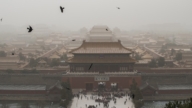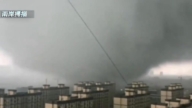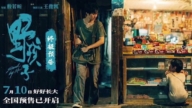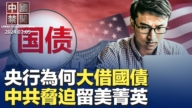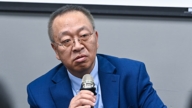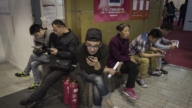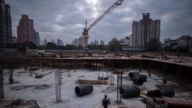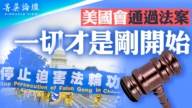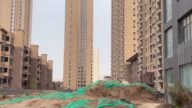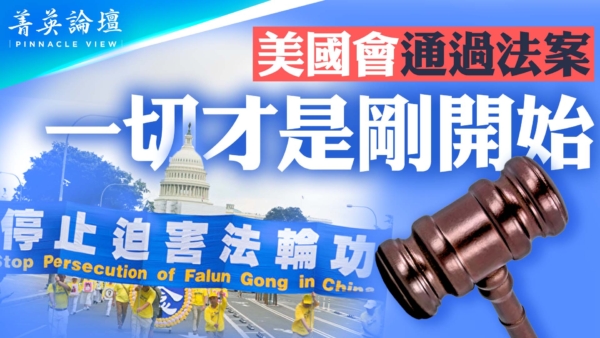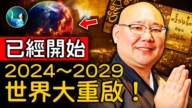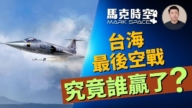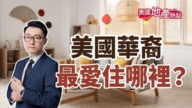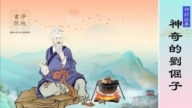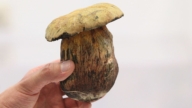【新唐人2012年9月1日訊】為了十八大的召開,中共當局為所謂「營造良好的社會文化氛圍」,最近加大了「掃黃打非」的力度,各地開展了打擊非法出版物,整肅所謂「違規」的媒體。不過,大陸媒體人指出,中共的掃黃打非,是為了統一黨文化,為它的專制統治服務。但以目前大陸的情勢來看,未來留給中共和人民選擇的時間已經不多了。
北京市在8月27號召開「掃黃打非」的專項行動部署會議,計劃在8月下旬至10月下旬全面加強文化市場的監管,增強打擊所謂「非法出版物專項行動」,為十八大的召開「營造良好的社會文化氛圍」。
江蘇網路作家顧志堅:「所謂的掃黃打非、所謂的加強對非法出版物的控制、打擊,實際上說白了就是統一它的黨文化。他的用意並不是在於想讓民眾享受甚麼乾淨的環境,而是只讓民眾接受它的文化教育。」
江蘇網路作家顧志堅指出,在這過程中往往是充滿暴力和血腥的,因為在中國,一切都是以黨權為第一位、以它的統治權為第一位,其他都是次要的。
而獨立筆會記者、自由撰稿人劉逸明指出,當局封殺的,都是被認為敢言的網路媒體,受到打擊的也是維權人士、異議人士,甚至是訪民。
獨立筆會記者劉逸明:「所謂營造文化氛圍,實際上就是要消除異己的聲音。這是一貫的,每一次黨代會都會有這方面的動作,掛羊頭賣狗肉。真正好的文化氛圍就是讓大家自由的言說,讓媒體能夠自由的報導。」
但是,中共當局對媒體整肅已經開始。
中共喉舌媒體《新華社》8月29號的消息說,山東《經濟觀察報》因連續刊發虛假失實報導,被山東省新聞出版局給予行政處罰,並表示,「這些報導造成了不良社會影響。」
不過,大陸媒體人指出,山東《經濟觀察報》長期以敢言著稱,對食品安全、公共領域等也做了不少報導,2010年還因聯合大陸13家傳媒,發表並促請戶籍改革的「共同社論」,已遭過整頓。這次被整,是因為日前對北京水災的真相報導,當局不敢明說,只能指桑駡槐。
《經濟觀察報》對北京7.21水災事件,進行深度報導,發表了《房山不防》、《北京暴雨失蹤者》等,其中內容還披露了當局沒有公布的死者名字。8月4號開始,北京市報攤上的《經濟觀察報》一度被全面回收銷毀。
而今年以來,《新快報》、《東方早報》、《南方都市報》和《南方週末》等多家媒體都遭到了不同程度的整頓。
原《河北人民廣播電臺》編輯朱欣欣:「他怕的就是真正的把社會真相徹底的揭露出來,同時他也害怕民主的呼聲能夠公開的、廣泛的能表達出來。他只是想聽到一些虛假的這種聲音,來維護他的一黨專制的體系。」
現為自由撰稿人的朱欣欣還表示,一些所謂的非法出版物反映了事實真相、反映了民眾的聲音。他認為,不敢面對事實真相是自欺欺人的做法,這反映了專制者的虛弱。
顧志堅:「社會矛盾在激化,無論採取甚麼手段,你如果不是真正的尊重人權、傾聽民眾而搞壓制,你就是今天把他踩在腳下,哪一天他還要站起來,他還是要喊。」
顧志堅還指出,表面上說的冠冕堂皇,不對人民盡法律責任、盡行政職務責任的政府就不是好政府。中共應該在能夠左右中國未來的十八大上好好考慮如何做,但事實上留給它們和人民選擇的時間已經不多了。
採訪/朱智善 編輯/宋風 後製/鍾元
CCP ‘Cleans Up’ Own Media: Preparing to Welcome 18th Congress.
In order to prepare a favorable social atmosphere, the
Chinese regime has increased its strengths in ‘Eliminating
Pornography and Fighting Illegal Publications’ (EPFIP).
Various regions have started to fight illegal
publications and tidy up media that broke the rules.
However, Mainland media personnel the motive behind
this activity is to unify Communist Party Culture.
It is to better serve its dictatorship.
But by looking at the current situation in Mainland China,
it seems there is not much time left for the CCP.
On August 27, Beijing hosted a special
operation deployment meeting on EPFIP.
It plans to reinforce the comprehensive management
of, and supervision over, the cultural market.
This will be from the end of August to the end of October.
It also aims to knock out illegal publications to create a
favorable ambience for the 18th National People』s Congress.
Gu Zhijian, Jiangsu internet writer: “The so-called Eliminating
Pornography and Fighting Illegal Publications,
reinforcing control over pirated materials, in reality,
and honestly, is just to unify Communist Party Culture.
Its intention is not to let people enjoy a cleaner environment,
but to let people receive its [party] culture education.”
Gu Zhijian points out this process is often violent and bloody.
This is because in China, the power of the
Communist Party comes above everything else.
Its right to rule is number one, everything else is secondary.
Liu Yiming, freelance writer and reporter for the Independent
Chinese PEN Center (ICPC) commented.
What the regime shuts out and blocks are all websites
that have been considered to have the courage to speak up.
Those who receive the crack down are human rights
activists, dissidents, and even petitioners.
Liu Yiming: “In reality, the so-called “creating a cultural
atmosphere” is to eliminate dissenting voices.
This has been consistent, and party representatives act
this way every time at party representative meetings.
They hang up sheep heads but are selling dog meat.
A truly favorable cultural atmosphere is to let
people speak freely, and let media report freely.
But, the Chinese regime has already started
its act of tidying up the media.
China state-run media Xinhua News Agency
released information on August 29.
It said that The Economic Observer in Shandong has
received an administrative penalty from Shandong
Municipal Bureau of Press and Publication,
for continuously reporting false information.
Shandong Municipal Bureau of Press and Publication
said these reports “created unfavorable social influences”.
However, Mainland media personnel point out that
The Economic Observer has reported many times
on food safety and public domain issues.
It is known for its courage to speak out.
In 2010, they received punishment for its alliance
with 13 other Mainland medias, where an editorial calling for household registration reform was published.
This time, they are being “tidied up” because
the Chinese regime is afraid to speak clearly and openly concerning the truths about the flood in Beijing.
Hence, the CCP can only make an oblique accusation
by publicly criticizing someone who can be criticized.
This is instead of criticizing the national leaders.
The Economic Observer reported in great depth
on the flood in Beijing, which took place on July 21.
It published articles, such as “Fangshan District
is Not Protected” and “Missing Persons from Beijing Flood”.
These articles disclosed victims whose
names the regime did not reveal.
Starting on August 4, The Economic Observer was
taken off newsstands, and destroyed in Beijing.
Furthermore, media such as ‘xkb’, ‘dfdaily’, ‘nddaily’, ‘infzm’
and others received differing levels of punishment this year.
Zhu Xinxin, former editor from Heibei People’s
Broadcast Station: “What it fears is to completely reveal the true conditions in the society.
At the same time, it is afraid that the voices calling for
democracy will be expressed widely and publicly.
It just wants to hear some false,
superficial voices to protect is dictatorship.”
Now a free lancer, Zhu Xinxin expresses that some so-called
“illegal publications” actually reflect the truth of events.
They echo the voice of the people.
He believes being afraid to face reality is not only
lying to others, but also lying to oneself.
This reflects the weakness of the dictator.”
Gu Zhijian: “Social conflicts are intensifying.
If you do not truly respect human rights,
it does not matter what kind of methods you use.
If you listen to the people, but suppress them,
even if you place them under your feet today,
someday they will stand up, they will shout.”
Gu Zhijian also points out that a government which makes
pompous sounds superficially,
but does not take legal responsibility for the people to
carry out its political responsibilities, is a bad government.
The CCP should seriously consider what
to do on the 18th National People’s Congress.
This can determine China’s future, but in actuality,
there is not much time left for them and the people to make a choice.


